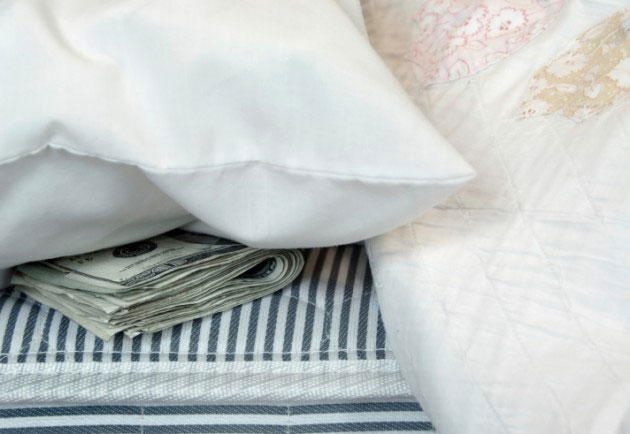It seems like such a logical thing to do – have your own private stash of money just in case something goes wrong. What if the kids need a little something extra or expenses are a little higher than the budget this month? Maybe the idea is something your mother taught you before you got married. Perhaps just knowing you have something saved away gives you a little bit of extra peace of mind. But what about hiding money for the sole purpose of preparing for a divorce, regardless of whether or not you’re in a happy marriage?
While every family situation is different and no two answers are the same for each person, everyone should carefully consider the consequences of hiding money before doing so and take other steps to protect their financial security.
Be Active in the Family Finances
For many families, one spouse takes charge of all of the finances. Maybe the decision is based in tradition, or perhaps it’s because one spouse makes all the money. And maybe it’s simply because one person likes finances and the other one hates dealing with numbers. Regardless of the reason, if you are the spouse who has not been historically involved in financial decisions, it’s time to change.
Pay attention to your bank accounts – just because statements are online and there are always enough funds for you to use your debit card does not mean that it’s okay for you to be unaware of what is deposited and spent each month in the account. You should know how to access the accounts and regularly look at the statements. If your marriage has been in trouble or you suspect your spouse may be considering divorce, pay attention to whether or not the deposits have changed over the past several months or if there has been any change in the spending habits.
Know where your money is being invested and what retirement accounts exist. Most large institutions have financial experts on hand to be able to explain your investment accounts. If there have been any recent withdrawals, you need to seek advice on any tax consequences the transactions may have triggered.
And speaking of which, review your tax returns – this includes all attachments, including W-2s and 1099s. Know how much your spouse earns and if there is additional bonus, commission, stock, or other forms of incentive pay. If you don’t feel confident in your ability to read tax returns, talk to a CPA or someone else who can help you understand them.
Understanding your finances may not be easy or fun, but it will ensure that you are prepared for a divorce. Knowing what assets and debts exist allow you to make smart financial decisions during the process and maximize your financial future. Financial education can never hurt you, period.
Maintain Good Credit
Even if you don’t believe in credit card debt, it’s a good idea to have one in case of emergencies. You want a credit card in your own name and secured with your own credit. That way, your spouse has no ability to close the account or take your name off of it. Ideally, you should have a card with a high enough balance that if an emergency arose, you would be able to support yourself for at least two to three months solely by using this card.
You may need to work towards building a good credit score, especially if you do not earn income or have had problems with your credit in the past.
Get Help
Talk to your friends and family – don’t be afraid to accept their offers of help if you need them. It may be extremely embarrassing for you to have this type of discussion with them, but your mortification is a small price to pay for financial security for you and your children. The more notice you can give them, the more ability they have to work within their budgets to come up with financial assistance for you.
Even if they cannot help you monetarily, they may be excellent resources to help you with taxes, budgeting, and other financial strategies.
Want some customized suggestions for you to be able to protect yourself financially in your divorce? Contact us for help.
